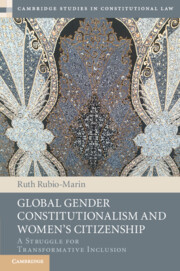In international human rights law, the right to food has become a widely accepted legal and normative framework for tackling the problem of food insecurity. However, as currently formulated, the right to food is insufficient as a framework to tackle gender-specific barriers that impede women's access to food, which has contributed to the persistence of women's food insecurity globally. While the equal enjoyment of the right to food is guaranteed by the non-discrimination and equality provisions in international law, this notion of equality, associated with the formal equality approach, fails to recognise and address women's historical experience of systemic discrimination. This article argues that women's food insecurity should be approached from a broader formulation of the right to food that is informed by a substantive equality perspective, drawing from contemporary interpretations and elucidations by human rights bodies which have pushed for a more substantive notion of equality.
